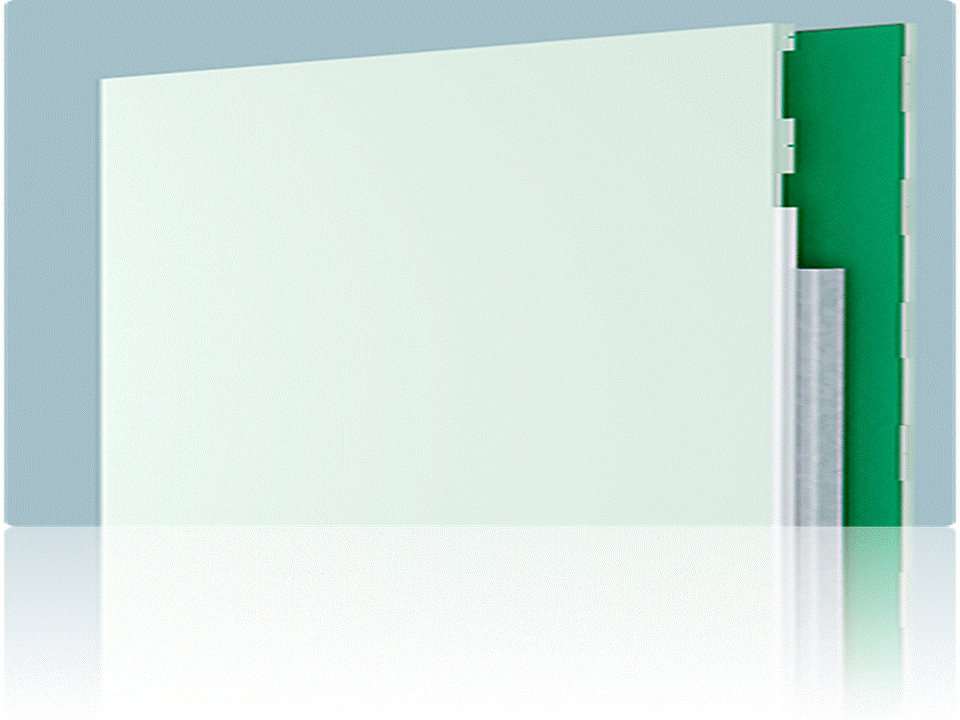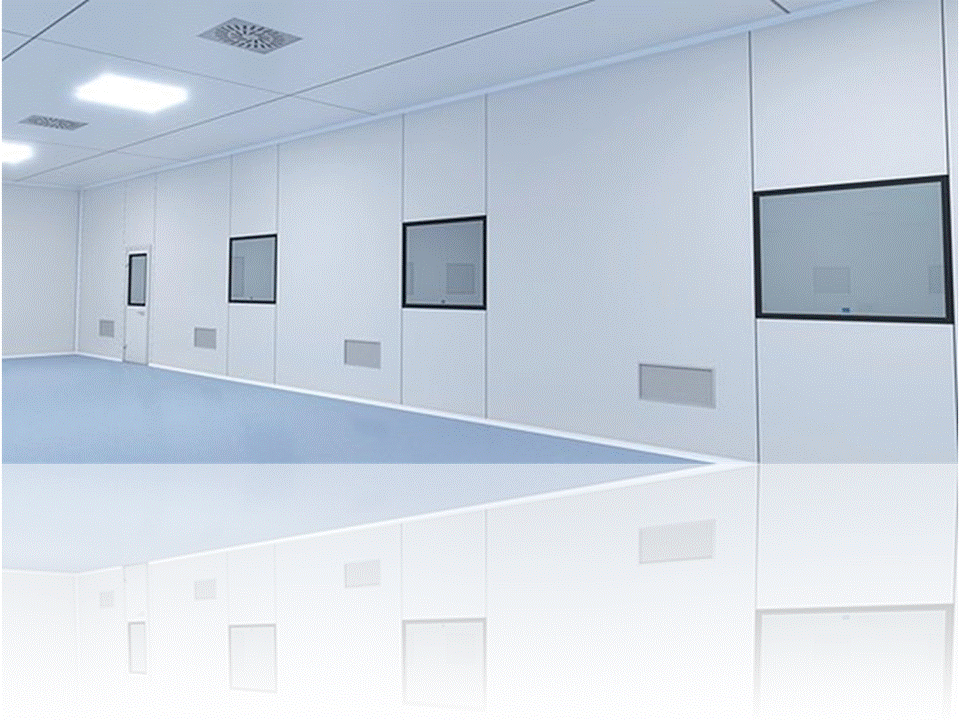

APPC Group of Companies
Design Production
Construction Engineering
e-mail: appc-info@mail.ru
Tel.: +7(910)130-97-27
o Enclosing wall structures for clean rooms
Plasterboard panels
A gypsum metal sheet or panel is a flat multilayer slab-cassette, consisting of a front metal shell and a gypsum board core. HMP claddings are an example of absolutely dry construction, as they do not require any puttying, painting or priming after installation.
Sheet metal with a thickness of about 0.55–0.7 3194-bb3b-136bad5cf58d_also the basis for the final polymer coating. For these purposes, use:
- оцинкованную сталь (марок FePo3G, 08 Ю, 08 КП — со слоем цинка не менее 20 мкм) ;
- sheet aluminum rolling;
- stainless steel (AISI 304, 430 grades).
Нержавеющая сталь может использоваться в чистом виде, а оцинковка и алюминий в большинстве случаев с_cc781905-5cde-3194-bb3b -136bad5cf58d_both sides are covered with several technological layers: top — passivation layer, primer, polymer coating, self-adhesive protective film; bottom - passivation layer, primer, protective varnish / paint.

Sandwich panels
Конструкции на базе данных изделий являются
самонесущими и не требуют возведение дополнительного
power frame - subsystems.
Конструктивно данные панели представляют собой гладкие
листы окрашенной оцинкованной или нержавеющей стали,_cc781905-5cde-3194-bb3b- 136bad5cf58d_
между которыми находится специальный теплоизолирующий материал._cc781905-5cde-3194-bb3b- 136bad5cf58d_The layers are connected using high-quality glue, which ensures the integrity and solidity of the entire product.
В смонтированном виде конструкция представляет
a single smooth surface.
Main advantages
- simplicity installation and transportation;
- integration cable-channels (optional);
- integration of viewing windows (optional);
-high resistance to treatment with disinfectant and detergent solutions;
-high resistance to ultraviolet radiation;
-possibility to provide various fire resistance limits (filler - mineral wool).
Features of polyisocyanurate (PIR).
Polyurethane foam (PUR) and polyisocyanurate (PIR) belong to the same class of polymers. They are based on a fine-mesh structure filled with foaming gas with low thermal conductivity.
Polyisocyanurate (PIR) is characterized by the fact that as a result of exposure to fire, the outer layer of PIR is charred and a porous carbon matrix is formed. As a result, the matrix prevents the further spread of combustion. The temperature of exposure to PIR can reach 140°C.
Panels can be painted in any RAL color.
